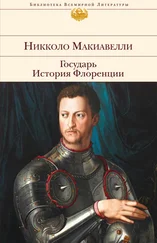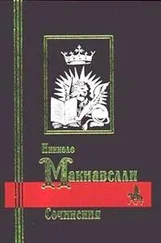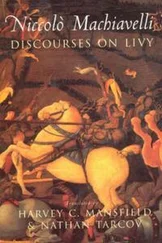Still no definite arrangement was made; but it was resolved that Giovanni Batista and Francesco de' Pazzi should go to Rome and settle everything with the pontiff. The matter was again debated at Rome; and at length it was concluded that besides an expedition against Montone, Giovan Francesco da Tolentino, a leader of the papal troops, should go into Romagna, and Lorenzo da Castello to the Val di Tavere; that each, with the forces of the country, should hold himself in readiness to perform the commands of the archbishop de' Salviati and Francesco de Pazzi, both of whom were to come to Florence, and provide for the execution of their design, with the assistance of Giovanni Batista da Montesecco. King Ferrando promised, by his ambassador, to contribute all in his power to the success of their undertaking. Francesco de' Pazzi and the archbishop having arrived at Florence, prevailed upon Jacopo di Poggio, a well educated youth, but ambitious and very desirous of change, to join them, and two others, each of the name of Jacopo Salviati, one a brother, the other a kinsman, of the archbishop. They also gained over Bernardo Bandini and Napoleone Franzeni, two bold young men, under great obligations to the family of the Pazzi. Besides those already mentioned, they were joined by Antonio da Volterra and a priest named Stefano, who taught Latin to the daughter of Jacopo de' Pazzi. Rinato de' Pazzi, a grave and prudent man, being quite aware of the evils resulting from such undertakings, refused all participation in the conspiracy; he held it in abhorrence, and as much as possible, without betraying his kinsmen, endeavored to counteract it.
The pope had sent Raffaello di Riario, a nephew of Count Girolamo, to the college of Pisa, to study canon law, and while there, had advanced him to the dignity of a cardinal. The conspirators determined to bring this cardinal to Florence, as they would thus be better able to conceal their design, since any persons requisite to be introduced into the city might easily be made to appear as a part of his retinue, and his arrival might facilitate the completion of their enterprise. The cardinal came, and was received by Jacopo de' Pazzi at his villa of Montughi, near Florence. By his means it was also intended to bring together Giuliano and Lorenzo, and whenever this happened, to put them both to death. They therefore invited them to meet the cardinal at their villa of Fiesole; but Giuliano, either intentionally or through some preventing cause, did not attend; and this design having failed, they thought that if asked to an entertainment at Florence, both brothers would certainly be present. With this intention they appointed Sunday, the twenty–sixth of April, 1478, to give a great feast; and, resolving to assassinate them at table, the conspirators met on the Saturday evening to arrange all proceedings for the following day. In the morning it was intimated to Francesco that Giuliano would be absent; on which the conspirators again assembled and finding they could no longer defer the execution of their design, since it would be impossible among so many to preserve secrecy, they determined to complete it in the cathedral church of Santa Reparata, where the cardinal attending, the two brothers would be present as usual. They wished Giovanni Batista da Montesecco to undertake the murder of Lorenzo, while that of Giuliano was assigned to Francesco de' Pazzi and Bernardo Bandini. Giovanni Batista refused, either because his familiarity with Lorenzo had created feelings in his favor, or from some other reason, saying he should not have resolution sufficient to commit such a deed in a church, and thus add sacrilege to treachery. This caused the failure of their undertaking; for time pressing, they were compelled to substitute Antonio da Volterra and Stefano, the priest, two men, who, from nature and habit, were the most unsuitable of any; for if firmness and resolution joined with experience in bloodshed be necessary upon any occasion, it is on such as these; and it often happens that those who are expert in arms, and have faced death in all forms on the field of battle, still fail in an affair like this. Having now decided upon the time, they resolved that the signal for the attack should be the moment when the priest who celebrated high mass should partake of the sacrament, and that, in the meantime, the Archbishop de' Salviati, with his followers, and Jacopo di Poggio, should take possession of the palace, in order that the Signory, after the young men's death, should voluntarily, or by force, contribute to their assistance.
Giuliano de' Medici slain—Lorenzo escapes—The archbishop Salviati endeavors to seize the palace of the Signory—He is taken and hanged—The enterprise of the conspirators entirely fails—Manifestations of the Florentines in favor of Lorenzo de' Medici—The conspirators punished—The funeral of Giuliano—The pope and the king of Naples make war upon the Florentines—Florence excommunicated—Speech of Lorenzo de' Medici to the citizens of Florence.
The conspirators proceeded to Santa Reparata, where the cardinal and Lorenzo had already arrived. The church was crowded, and divine service commenced before Giuliano's arrival. Francesco de' Pazzi and Bernardo Bandini, who were appointed to be his murderers, went to his house, and finding him, they, by earnest entreaties, prevailed upon him to accompany them. It is surprising that such intense hatred, and designs so full of horror as those of Francesco and Bernardo, could be so perfectly concealed; for while conducting him to the church, and after they had reached it, they amused him with jests and playful discourse. Nor did Francesco forget, under pretense of endearment, to press him in his arms, so as to ascertain whether under his apparel he wore a cuirass or other means of defense. Giuliano and Lorenzo were both aware of the animosity of the Pazzi, and their desire to deprive them of the government; but they felt assured that any design would be attempted openly, and in conjunction with the civil authority. Thus being free from apprehension for their personal safety both affected to be on friendly terms with them. The murderers being ready, each in his appointed station, which they could retain without suspicion, on account of the vast numbers assembled in the church, the preconcerted moment arrived, and Bernardo Bandini, with a short dagger provided for the purpose, struck Giuliano in the breast, who, after a few steps, fell to the earth. Francesco de' Pazzi threw himself upon the body and covered him with wounds; while, as if blinded by rage, he inflicted a deep incision upon his own leg. Antonio and Stefano, the priest, attacked Lorenzo, and after dealing many blows, effected only a slight incision in the throat; for either their want of resolution, the activity of Lorenzo, who, finding himself attacked, used his arms in his own defense, or the assistance of those by whom he was surrounded, rendered all attempts futile. They fled and concealed themselves, but being subsequently discovered, were put to death in the most ignominious manner, and their bodies dragged about the city. Lorenzo, with the friends he had about him, took refuge in the sacristy of the church. Bernardo Bandini, after Giuliano's death, also slew Francesco Nori, a most intimate friend of the Medici, either from some previous hatred or for having endeavored to render assistance to Giuliano; and not content with these murders, he ran in pursuit of Lorenzo, intending, by his own promptitude, to make up for the weakness and inefficiency of the others; but finding he had taken refuge in the vestry, he was prevented.
In the midst of these violent and fearful deeds, during which the uproar was so terrible, that it seemed almost sufficient to bring the church down upon its inmates, the cardinal Riario remained close to the altar, where he was with difficulty kept in safety by the priests, until the Signory, upon the abatement of the disturbance, could conduct him to their palace, where he remained in the utmost terror till he was set at liberty.
Читать дальше












